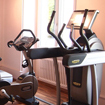Accidents and Risk Taking
Intermediate B1+ level
Description
Materials
Main Aims
-
To provide gist and detailed reading practice using a text about why people are accident-prone.
Subsidiary Aims
-
To provide with an opportunity to respond to the text and expand on what they've learned through speaking
Procedure (21-55 minutes)
I will start with a story: Imagine that I'm driving a car. I'm trying to get into a busy street. I'm waiting for the cars to stop so I can get across. But, I'm late for work! The cars are fast and keep coming. Finally, I see a little interruption in the traffic. Do I take the risk? Should I keep on driving? If I drive, maybe I'll have an accident. Should I take the risk? If you were in the same situation, would you take the risk? Try to get some answers from the students. (Yes/No/I don't know) Are you a risk-taker? Now look at this picture and tell me what the woman is doing? Is there anything risky, dangerous in the picture? She’s driving fast, she breaks the speed limit. She’s talking on the phone when driving She’s putting on/wearing her make-up Does she have risky behaviours? Does she do risky things? Is it possible that she might have an accident? Tell me the percentage. What is the percentage? 70% is this high or low? 20%? So she might have an accident. She is accident-prone.
SS will do a quiz to find out if they are accident-prone or not? Before the quiz, some clarification on unknown vocabulary will be done with the help of CCQs or gestures. (assumed vocabulary: insurance/unplug/instructions/break the speed limit) After they finish the quiz, the score check results will be posted on the wall for them to find out their points. As whole class we'll find out someone who takes a lot of risks, and who doesn't based on the scores. After the survey we are going to read about why people are accident-prone. Before we start reading; we will clarify some vocabulary. (upbringing, adolescence, adolescent, clumsy, strict) Before the reading the students will be provided with HO1. This ho has several sentences/ideas that can be discussed. SS will discuss if they agree on the sentences or not. First in pairs then as groups. CCQs for new vocabulary: when you are away from home, is your TV still on/working? What do you do? (close it-turn it off) Is it still connected to the electricity supply? So do you disconnect it? Let’s say I had an accident on holiday. I didn’t pay anything to the hospital, but my insurance company did. Because I had an insurance. I bought a smart cell-phone for my mother. But she didn’t know how to use it. I’m not home so what should she look at? So she checked the instruction booklet. I’m driving at 90 kilometers on Eskişehir road. Is it above the speed limit or under the speed limit? So I break the speed limit. I go over the speed limit. Text vocabulary Upbringing The way your family raises, educates you What do your parents do? (teaches life) What do they teach you? What to do/How to behave How do they affect you? In what ways do they affect? Personality/likes/dislikes/manners=character of a person is shaped by the parents. So… upbringing is shaping a child… Adolescence/adolescent: Are you a child? When does your childhood finish? Are you a teenager? Are you 30 years old? Are you 16? At the age of 13 are you adolescent? Clumsy: Like a bull in china shop Strict: Not tolerant, disciplinary, always go by the book.
This time they will try to find out if the ideas on HO1 are true or false by scanning the text in pairs, then gw to check if they have the same answers. Elicitation will be done after the activity.
Ss will search for the correct information for the HO2. This time they will skim the text to find and write down the correct sentences. (pair work, group work/check) FB will be given. After the activity as a preparation for the post reading /production phase ss will match the main ideas provided in HO3 with the paragraphs. (pair work, group work/check)
With the help of the main ideas they will interview with eachother to see if their classmates agree on the main ideas or not. They will try to elicit from eachother why they agree or why they don't by asking questions. At the end of the activity they will report to the class.

